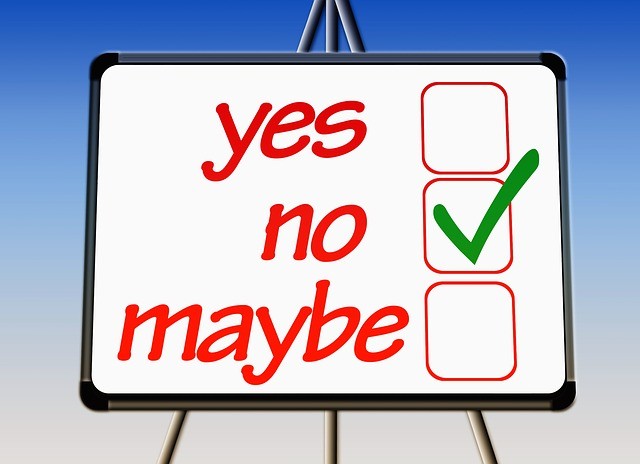Mental illness: Friendships & The Fear of The Bottom Dropping Out

The other day I was watching Breakfast at Tiffany’s on TV. There were a bunch of commentators present. They pointed out the racist depiction of Asians and how wrong it was to have a white actor, Mickey Rooney, play a Japanese landlord with a crooked accent. Today, we call it “yellow face.” This sparked a meaningful discussion about how far we’ve come as a society. Most of us have used a slur or said something we regret at some point. The commentators pointed out the use of the word “fag” in popular culture in the 80s, 90s, and even early 2000s. They said they were grateful that this term is fading away.
Bipolar Jokes and Media Misrepresentation
I found their discussion insightful. Halfway through the evening, that infamous party scene came on. No one threw a party like Holly Golightly! Or wore a black dress and tiara like Audrey Hepburn. At one point, the host made fun of one of the guests who was crying calling her “Bipolar Betty.” It made me sad as a person with bipolar disorder who also loves many people with mental illnesses. The comment was ironic considering the group just pointed out the power of words and their effect on marginalized groups. Recently, I saw an episode on a nighttime drama that portrayed a character with bipolar disorder as unstable. After she breaks up with a guy, she accuses him of rape! He is arrested. She is also violent; after their argument, she hurls scissors at him. One joke like “Bipolar Betty” may not seem like a big deal. But when you put it in greater context, it is. When the media talks about mental illness, they make patients look like we’re batsh*t crazy (pardon my language) but that’s the best way I can put it. When the news talks about mental illness, it’s after shootings despite the fact that only 4% of all violent crimes are committed by people with mental illness. And that people with mental illnesses are actually ten times more likely to be victims of violent crimes than the general population. It’s important to discuss mental illness but we also have to be accurate.
What Happens to the Friendship When We Get “Real”?
Last year, my mom told me about an incident when a coworker said she no longer wanted to be friends with a longtime family friend because he was diagnosed with bipolar. My mom encouraged her to stay friends and said that people with mental illnesses need compassion. The other day, a friend asked me if I could hang out pretty late. I could not because I have bipolar disorder and sleep is essential in managing it. A lack of sleep can trigger mania (or hypomania for those with bipolar 2). For me, a lack of sleep has often triggered depression. I was embarrassed to text my friend back and say no. Afraid I would offend him too. My mom told me I had to prioritize my health over potentially offending my friend. For someone with has worked in mental health nonprofit, I felt ashamed of myself for not going into detail. Why was it so hard to tell my friend I couldn’t go out? For crying out loud, I let MSNBC film me for a month and half for a mental health documentary. I know he knows I have bipolar disorder (I’m pretty open in my articles and speeches). In the past, he has posted that viral joke on my Facebook wall (“Tag your friends–if you were in a mental hospital, who is the one who would be screaming out the window?, the one who would be running with scissors?, etc”). Multiple friends have posted this joke on my wall. When friends have posted this on my wall, I have untagged myself but never said anything. A litmus test for seeing if a joke is offensive is: Would you say this about people with cancer? Can you imagine a Facebook joke about cancer patients going viral? “Tag your friends: Imagine you were in chemotherapy: which patients would be losing their hair, gnashing their teeth, etc?” People with visible and invisible illnesses are all deserving of compassion.
Good People Sometimes Don’t Understand Mental Illness
My friend has been great to me, especially when it comes to my physical disability. I carry a cane for my neuromuscular autoimmune disease, Myasthenia Gravis. Most reasonable adults don’t make fun of people visible disabilities or cancer. But the reality is that there are nice, reasonable adults who do make fun of people with mental illness. People who don’t “get it” and don’t show the same kind of empathy. People who are afraid of people with mental illnesses. That’s what we’re conditioned to think. I didn’t want to be that open about my mental illness over text message; I don’t like having deep conversations over texts. But, I also realized that I was afraid of the bottom dropping out. What if, after all this time, he did not understand my bipolar disorder? What would happen to our friendship? As I blogged about in 5 Reasons People Abandon a Sick Friend, we don’t know how people will react. A friend of mine who has lupus and bipolar disorder did not lose friends after fighting lupus for decades. But, after her bipolar diagnosis, she lost several longtime friends.
Ultimately, people are partly a product of our times. I look forward to the day when mental illnesses aren’t punch lines. Until then, we do what we can do. We forgive (good) friends when they fall short. And ourselves for the times we also fall short.
–Your Stylist, Jessica Gimeno





CRINGEWORTHY FRIEND FAIL on the Facebook post.
He’d be kicking himself if he realized.